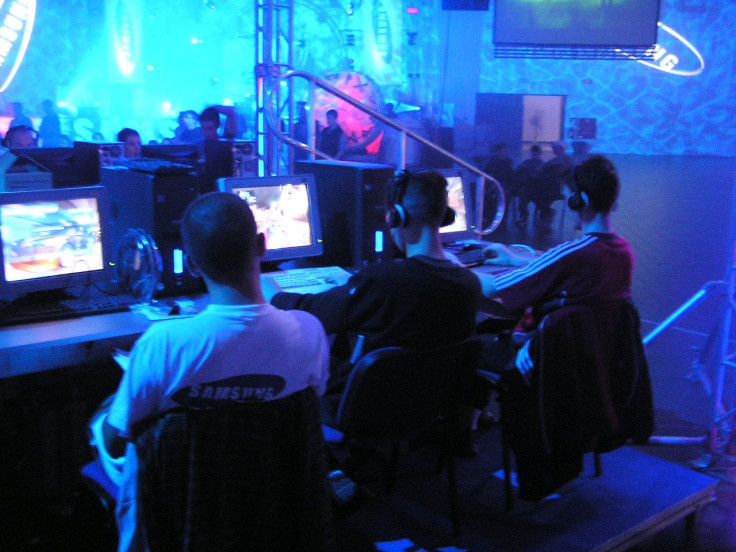Digital Dementia On The Rise In South Korea; Childhood Internet Addiction Must Be Addressed, Experts Say

Remember, 10 years back, when you used to know the phone numbers for all your friends, your family, and your five favorite food delivery spots? Have you noticed that you can no longer recall who played the main part in that one movie you loved? You may be suffering from "digital dementia," a deterioration of cognitive abilities resulting from over-use of computers, smart phones, and the Internet in general — and a problem that is, according to some experts, plaguing South Korea.
South Korea, according to the World Bank, has one of the world's greatest populations of internet users: 83.8 percent of South Koreans have access to the Internet. The country was also an early adopter of wireless technology, a trend that has held steady: over 67 percent of Koreans over the age of 16 have smartphones, the highest anywhere in the world outside of northern Europe. And smartphone penetration in South Korea is growing fast: it is predicted that by 2017, about 85 percent of Koreans will have smart phones, according to The Wall Street Journal.
And in a country where a 28-year old man once dropped dead after a 50-hour gaming marathon and a couple was sent to jail after their baby died from neglect while they raised a "virtual" child, it isn't surprising to learn that the cognitive abilities of citizens overwhelmed by screens may be compromised.
"Overuse of smartphones and game devices hampers the balanced development of the brain. Heavy users are likely to [over]develop the left side of their brains, leaving the right side untapped or under developed," Byun Gi-won, a doctor who runs the Balance Brain Center in southern Seoul told Korea JonngAng Daily. The Balance Brain Center was put together to help those with cognitive problems connected to computer and smart phone use — one example of the many such clinics that have been popping up all over South Korea.
This is the type of brain damage typically associated with stroke, tumors, traumatic brain injury, or psychiatric illness. Left brain damage can cause problems with attention, memory, organization, orientation, problem solving, reasoning, and social communication, according to the American Speech-Language-Hearing Association. In addition, in the long term, underdevelopment of the right brain can lead to serious health issues like early-onset dementia.
"Ten to 15 percent of those with the mild cognitive disorders develop dementia," says psychiatrist Park Ki-jeong. Government statistics bear him out: the number of people in their 20s, 30s, and 40s suffering from cognitive problems increased by 37 percent between 2008 and 2012.
In 2012, a German neuropsychiatrist and professor, Dr. Mafred Spitzer, wrote a book called Digitale Demenz — Digital Dementia — arguing, essentially, the Internet makes you dumb. To put it a bit more subtly, internet use "inevitably has a negative effect on learning," says Spitzer. Claudia Ehrenstein, writing for Die Welt in 2012, provided a useful analogy: "When drivers depend exclusively on their navigation technology, they do not develop the ability to orient themselves, although of course the brain offers them the possibility of learning how to do so," Ehrenstein says.
The problem is exacerbated in children: if, during a time when their brains are supposed to be developing the neural connections on which they will build their understanding of the world, they learn to rely on the crutch of the computer instead of their own reasoning and memory skills. It stands to reason that those skills may end up underdeveloped for a lifetime.
And, it may be even more of an issue for teens, since there are some major changes going on the brains between the ages of 17 and 19. Specifically, the right and left prefrontal lobes are going through a critical development phase. Overexposure to devices during the age could severely impair that development.
Computer use is inevitable; only the rare teenager could realistically function without it. In order to prepare for college and the job market, young adults are expected to have the types of advanced technological skills that can only come with extensive exposure. However, limits may be wise. The Ministry of Science, ICT and Future Planning reports that 18.4 percent of South Koreans between 10 and 19 years old use their smartphones for more than seven hours a day. By way of comparison, the average American uses their smartphone for 58 minutes per day.
Although it was not included in the DSM-V, many would argue that Internet addiction is a real mental disorder. And if it is — and it is starting to show some major long-term public health effects — shouldn't we treat it as such?
"Using digital media in kindergarten or primary school is actually a way of getting children addicted," Spitzer wrote in his book. With 160,000 South Korean children addicted, it might be time to get media out of the classroom — at least temporarily — before they suffer the type of long-term right brain underdevelopment that could lead to generation stricken with digital dementia.
Published by Medicaldaily.com



























